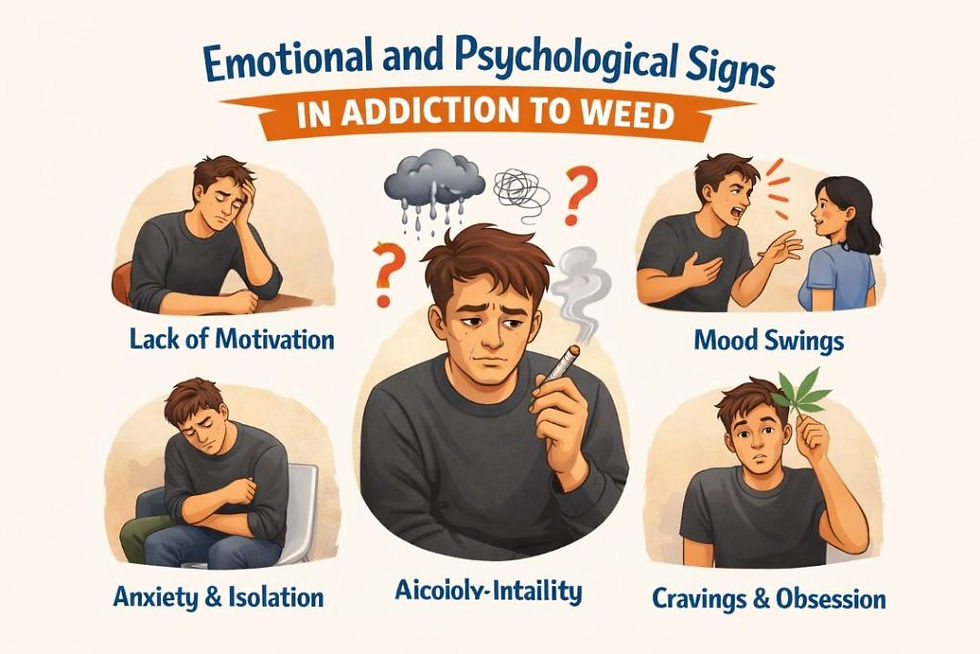A Guide to Different Types of Mental Health Therapy
- Felicia Parris

- Sep 9, 2024
- 3 min read
Mental health care is essential for improving emotional well-being, addressing disorders, and enhancing overall quality of life. With various forms of therapy available, it’s important to understand which one might be best suited for your specific needs. Therapy is not one-size-fits-all, and the right type of therapy can help you navigate life's challenges more effectively. Here's an overview of some of the most commonly used therapeutic approaches for mental health.

Cognitive Behavioral Therapy (CBT)
Cognitive Behavioral Therapy is one of the most widely used therapeutic approaches. CBT focuses on identifying and changing negative thought patterns that can lead to emotional distress and unhealthy behaviors. It’s particularly effective for individuals struggling with anxiety, depression, and PTSD. Through structured sessions, therapists work with individuals to reframe distorted thoughts and behaviors into positive and productive ones. CBT often involves homework, where patients practice techniques learned during therapy in real-world situations.
Dialectical Behavior Therapy (DBT)
Dialectical Behavior Therapy is an extension of CBT that specifically helps individuals with borderline personality disorder, emotional regulation issues, and self-harm tendencies. DBT combines individual therapy with group therapy, teaching mindfulness, distress tolerance, emotional regulation, and interpersonal effectiveness. This type of therapy is beneficial for those who find it difficult to manage intense emotions.
Psychodynamic Therapy
Psychodynamic therapy focuses on understanding the unconscious processes that influence thoughts, feelings, and behaviors. Rooted in Freudian theory, this approach often explores early childhood experiences and unresolved conflicts that may be affecting present-day behavior. It’s particularly useful for individuals dealing with deep-seated issues such as chronic depression, anxiety, and unresolved trauma. Unlike CBT, psychodynamic therapy tends to be less structured, focusing on free association and self-exploration.
Humanistic Therapy
Humanistic therapy emphasizes self-growth and self-actualization. Techniques like client-centered therapy, developed by Carl Rogers, focus on providing a non-judgmental, empathetic environment that allows individuals to explore their feelings freely. This type of therapy is ideal for people who are seeking a greater sense of meaning in life and are working on self-esteem or existential issues.
Acceptance and Commitment Therapy (ACT)
ACT encourages individuals to accept their emotions instead of fighting them. This type of therapy focuses on increasing psychological flexibility, allowing individuals to adapt more readily to life’s challenges. ACT combines acceptance strategies with commitment to behavior change, helping people live more lives aligned with their values. It is often used for treating anxiety, depression, and chronic pain.
Family Therapy
Mental health issues often don’t just affect the individual—they can impact the entire family dynamic. Family therapy involves bringing together family members to work through issues like communication problems, conflict resolution, and understanding the effects of mental health disorders on relationships. This approach is beneficial when the mental health of one family member is creating tension within the household.
Group Therapy
In group therapy, multiple participants work through similar issues with the guidance of a therapist. This setting provides an opportunity for individuals to learn from others, share their experiences, and practice interpersonal skills in a supportive environment. Group therapy is often used in treating addiction, depression, anxiety, and social phobias.
Holistic Therapies
Many mental health treatment programs now integrate holistic therapies to complement traditional approaches. These include mindfulness meditation, yoga, art therapy, and equine therapy. Holistic therapies aim to treat the whole person—mind, body, and spirit—offering additional support for emotional regulation and stress management.
Which Therapy is Right for You?
Choosing the right type of therapy depends on your specific mental health needs and personal preferences. Each therapy has its strengths, and what works for one person may not work for another. At DeLand Treatment Solutions, we offer personalized care plans that consider your unique situation. Our team of professionals will guide you toward the therapy that aligns best with your goals, whether it's Cognitive Behavioral Therapy, Acceptance and Commitment Therapy, or a combination of approaches.
Ready to Take the Next Step?
If you or a loved one is struggling with mental health challenges, reaching out for professional help is the first step toward healing. At DeLand Treatment Solutions, we offer a variety of evidence-based therapies tailored to meet your specific needs. Contact us today at (386) 866-8689 to learn more about our comprehensive mental health treatment programs and find the right therapeutic approach for you. Let us help you embark on the path to emotional well-being and a brighter future.



Comments